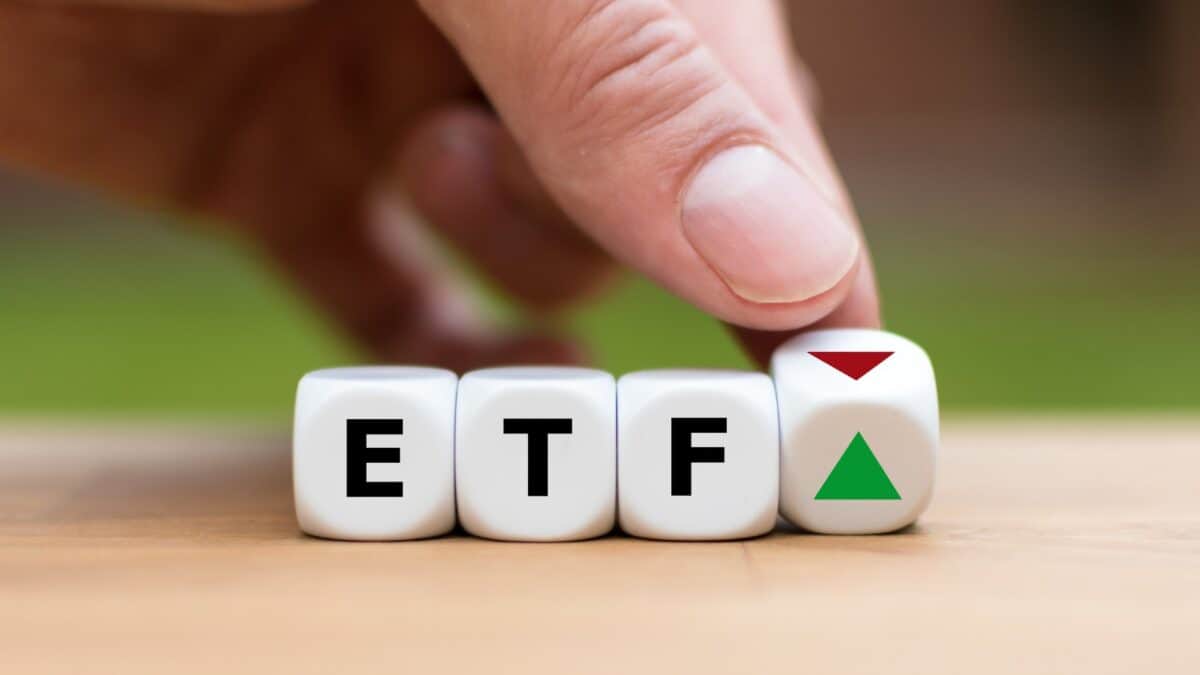
Image source: Getty Images
Building wealth in the stock market doesn’t have to be complicated nowadays. Just buying a low-cost index fund then adding to it every week or month will do the trick.
Due to the power of compounding returns, even modest sums can eventually lead to a jaw-dropping end result.
Keeping things nice and simple
The Vanguard FTSE 100 UCITS ETF (LSE: VUKE) tracks the performance of the UK’s 100 largest companies. The list is rebalanced quarterly to reflect the rise and fall in the market value of companies.
In the latest reshuffle, struggling fashion house Burberry was replaced by insurer Hiscox. It’s a bit like teams getting relegated from and promoted to the Premier League.
Through a mixture of share price gains and dividends, the historical return of the FTSE 100 is just below 8%. There’s no guarantee that will continue in the years ahead. It could be more or less.
However, if this trend continues, then the return of the Vanguard FTSE 100 ETF should mirror this.
There are two versions of the fund for investors: distributive and accumulative. The first is where income is paid out, while the second automatically reinvests the dividends back into the fund.
What’s in it?
Here are the ETF’s top 10 holdings (as on 31 August).
| Stock | % of fund |
|---|---|
| AstraZeneca | 9.26% |
| Shell | 7.98% |
| HSBC | 5.85% |
| Unilever | 5.63% |
| BP | 3.38% |
| GSK | 3.08% |
| RELX | 3.08% |
| British American Tobacco | 2.64% |
| Diageo | 2.56% |
| Rio Tinto | 2.37% |
These are all truly global firms. I personally hold four of them in my own portfolio (AstraZeneca, HSBC, British American Tobacco, and Diageo), and I’ve had my eye on data analytics giant RELX for ages.
One thing to bear in mind here is China. Beijing has just announced its biggest economic stimulus package since Covid. But if that fails to boost growth and the economy worsens, it could drag down FTSE 100 commodity stocks and affect the index’s performance.
Starting from scratch
Let’s assume I can afford to invest £99 a week — equivalent to £429 a month — into this ETF and it delivers the same returns in future. Here’s what would happen after 10, 20, and 30 years.
| Number of years | Total invested | End balance |
|---|---|---|
| 10 | £51,479 | £77,089 |
| 20 | £102,959 | £241,984 |
| 30 | £154,438 | £594,698 |
As we can see, the gains start out slow then accelerate as compounding really starts to take hold. In fact, the power of exponential returns is so great that the total would be nearly £3m after 50 years.
After a century, it’d be over £135m!
However, unless there’s a major advance in the science of longevity, I think 20-30 years is a more realistic time frame for most investors than a century.
Why settle for this?
This is with just £99 a week and average returns of 7.9%. But why just stick with the FTSE 100? The average historical returns of the S&P 500 — the 500 largest American companies — is more like 10.5%.
If I can build a portfolio of stocks, or a combination of different index trackers, that match this performance, this would make a massive difference to my return. So would adding in more money.
Let’s recalculate the numbers using a 10.5% average return and £150 a week invested.
| Number of years | Total invested | End balance |
|---|---|---|
| 10 | £77,999 | £133,861 |
| 20 | £155,998 | £497,172 |
| 30 | £233,998 | £1,483,226 |
In this scenario, the figure after 20 years wouldn’t be too far off the 30-year total in the first example. That’s the difference a couple of percentage points of investing returns can make over time!













